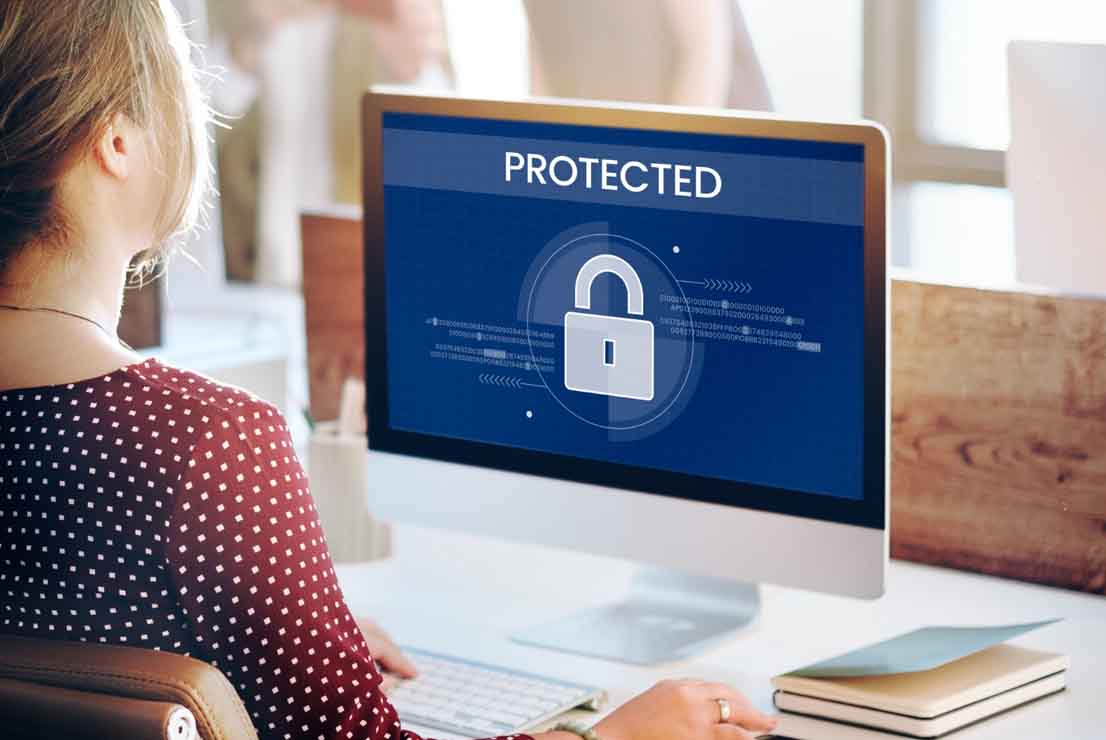A long-term priority of businesses is ensuring the safety and protection of their passwords, financial, and other personal information from intruders. But besides businesses, it is also important for consumers and individuals to heed data protection advice and use some sound practices to ensure the safety and security of their sensitive personal information.

Concerning the protection of passwords, desktop computers, laptops, and mobile devices from malware, hackers, and other threats, there several information available for consumers, families, and individuals.
Also, information is abundant concerning the best practices for safely using the internet. Since there is a lot of information to take in, there is a high possibility of getting confused, especially if they are not tech-savvy.
We have compiled a list of 101 best simple, straightforward data protection practices and tips to help you keep your family’s personal information private and protect all your devices from any form of threat.

Securing your devices and networks
Cybersecurity is critical for all sizes of businesses, consumers, families, and individuals. Here are some data protection tips that can help you secure your devices and networks.
1. Encrypt Your Data
Due to the various modern publicly available tools, the process of encrypting and decrypting your personal information is no longer a technology solely for geeks and mathematicians; because the rocket science, part of it has been removed.
The GPG for Mail is an open-source plug-in for the Apple Mail program that uses the OpenPGP standard to ensure the easy encrypting, decrypting, signing, and verification of emails. For the protection of files, the newer versions of Apple’s OS X operating system comes with a computer hard drive encrypting program — FileVault.
People that run Microsoft Windows can install a program that is quite similar to FileVault. The software or program scrambles your data but will not protect you from government authorities when they start using the Regulation of Investigatory Powers Act (2000) as a coy to demand for your encryption key. For this reason, some specialists recommend using a program that features some interesting facilities that David Miranda might have found useful — TrueCrypt.
2. Backup Your Data
Backing up your data is a basic data protection tip that is usually overlooked. The data backing up process involves the creation of a duplicate copy of your data so that none of your vital information or documents will be lost if anything happens to your device (probably it got lost, stolen, or even compromised). It has once been pointed out by the U.S. Chamber of Commerce and Insurance Company Nationwide that, “According to Nationwide, 68% of small businesses have no plan for disaster recovery. The problem with having no disaster recovery plan is that the longer it takes you to restore your data, the more money you will lose in the long run.”
3. The Cloud Provides A Viable Backup Option
Using the cloud, you must use sound security practices because it provides you with an ideal data backup solution. Since you did not store your data on a local device, it will be easy to access it even when your hardware becomes compromised.
4. Anti-malware Protection Is Compulsory
One of the issues plaguing computer users is malware (short for malicious software) because it is software designed to infiltrate or damage a device without the users’ knowledge. Scammers can be very sneaky because they can cleverly disguise malware as an email from a useful site or friend and downloadable files, photos, videos, freeware, or shareware. Computer viruses, worms, trojan horses, scareware, spyware, etc., are examples of malware. It is advised that you get anti-malware protection to help you lay a secure foundation for your devices and ensure that you do a periodic scan for spyware and avoid clicking on suspicious emails or websites. With this, your computer will be protected from malware.
5. Make The Hard Drives Of Your Old Computers Unreadable
Once you are done backing up and transferring all the files you need from your computer’s hard drives; you are to make the hard drives unreadable before disposing of them because a hacker will be able to glean your personal information from them. Some things you can practice to sanitize or make your hard drives unreadable are disk shredding, cleaning the disk magnetically, or wiping the disk clean with a software.
6. Install Operating System Updates
Despite operating system updates being a huge pain for users, they are the necessary evil as they keep your computer protected from newly discovered data threats because of the critical security patches they contain. Failing to install your operating system updates irrespective of the one you use will put your devices at risk. So, to ensure that you always have an operating system that’s updated, you will need to set the operating system in your device to automatically update.
7. Automate Your Software Updates
To ensure that the latest security update is always on your device, enable automatic updates. With this, most software programs installed on your device will connect and update automatically so that your device can defend itself against known risks.
8. When You Are At Home or Work, Ensure That Your Wireless Network Is Secure
It is recommended for Business owners and individuals or families to secure their wireless network with a password. It prevents unauthorized individuals within the proximity of hijacking their wireless networks. Even if a person is only trying to access free Wi-Fi, you do not want to unintentionally share your private information with other people who use your network without permission. You can hide your Wi-Fi network by setting up your wireless access point or router so that you would not have your network name broadcasted.
9. When Your Devices Are Not In Use, Turn Them Off
Once you are no longer using your device, you have to power it off because leaving your device on, especially when connected to the internet, will leave it vulnerable to rogue or cyber-attacks.
10. Do Not Forget To Delete Old Files From Cloud Backups
Backing up your data with a secure cloud storage service is important because you’ll still have a copy of your data even when it gets stolen or deleted. It creates an additional step when you are trying to delete your old information from your device. Remember that even though you delete your files from your device, they will still be stored in your cloud account if you previously backed them up. So, always remember to delete the files from your backup services in addition to those stored in your local devices.
11. Use A Firewall
Firewalls help in blocking out dangerous viruses, spyware, or programs before they can get the opportunity to infiltrate your device. There are lots of software companies that offer firewall protection. Getting a hardware-based firewall is the best option because they provide your device with a better security level.
12. Practice The Principle of Least Privilege (PoLP)
Avoid logging into devices wherein the device has been given administrative rights unless you want to perform specific tasks. Devices that run as administrator (or as a Power User in Windows) are typically vulnerable to security exploits and risks. When you visit some unfamiliar websites with these high-privilege accounts, it can cause extreme damages like using the administrative access to your to reformat your hard drives, delete all your files, and create a new user account. Always follow procedures that are secure when you need to be an administrator to perform tasks.
13. Encrypt The Data Stored On Your USB Drives And SIM Cards
Encrypting the data you stored on your removable storage devices (like a USB drive and SIM card) will ensure that if your phone gets stolen or missing, tech-savvy criminals will find it difficult to interpret your data.
14. If You Are Not Using The File And Media Sharing, Disable It
Suppose you have a home wireless network that already has multiple devices connected to it. In that case, you might find the sharing of files process between the devices convenient. However, when it is not necessary, your files are not needed to be made available publicly. When you share certain files or folders, ensure that you do that on the home network to not share sensitive information with someone you do not know. Completely disable file and media sharing on your device if you do not want any of your files to be visible to other devices.
15. Overwrite Deleted Files
When you delete your information from a device, it rarely means that it has been permanently deleted because most times, the data can still be recovered by someone that knows their stuff (like a tech-savvy criminal set on a mission to find your personal information) as it still exists on the hard disk. Overwriting files that you previously deleted is how you can be sure that your old data is gone from your device and its disk.
16. Use “Passphrases” Rather Than “Passwords.”
When you are trying to increase your devices and networks’ security, you should use passphrases rather than the normal passwords. Passphrases are a series of random sentences or words put together in your way to form a unique word or sentence. When choosing the passphrase to use, always try to make sure that it is long because the longer the passphrase (or the more characters it has), the stronger it will be. The good thing about passphrases over passwords is that they are much easier to remember and type, yet more difficult for cyber attackers to hack.

